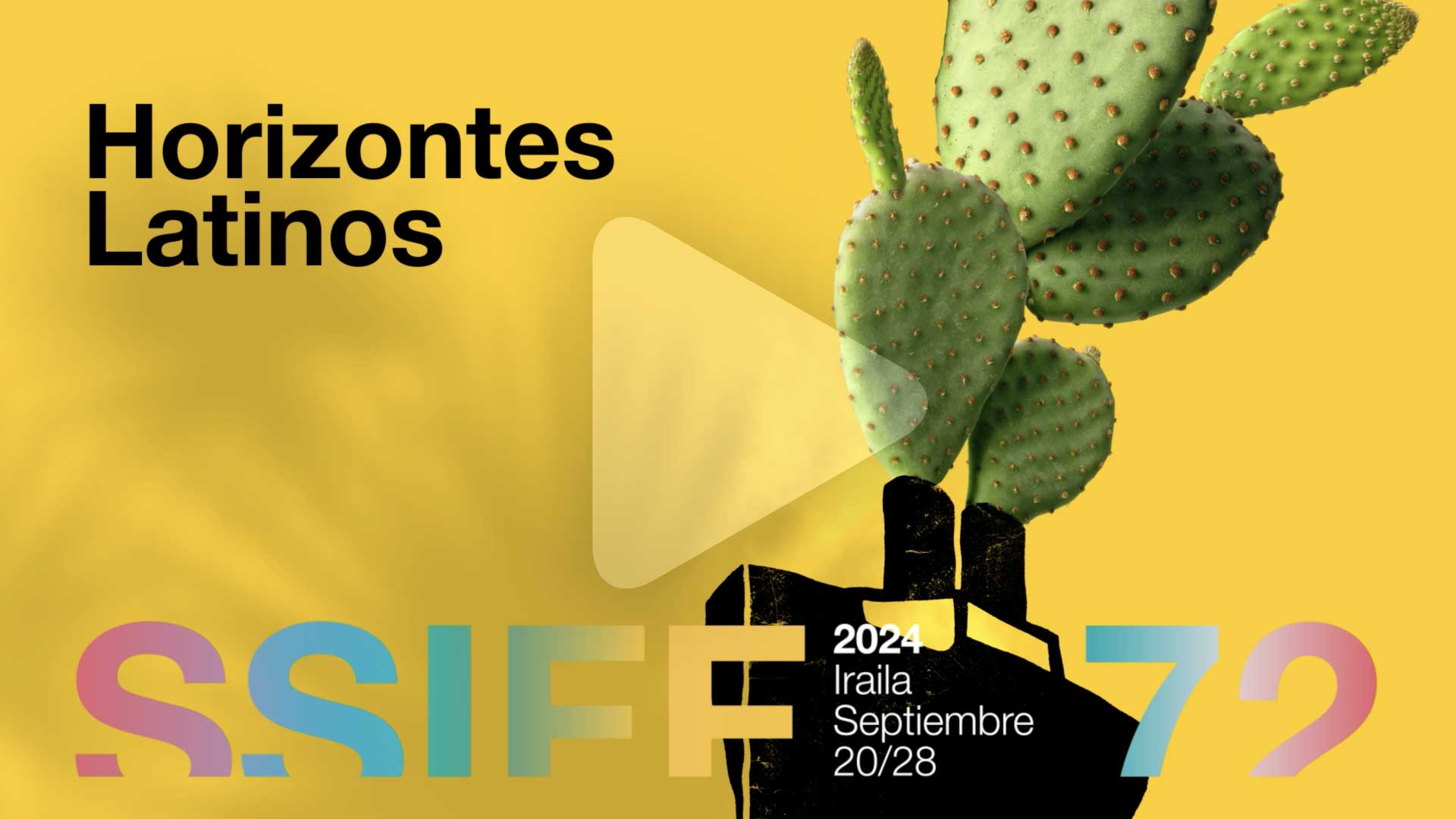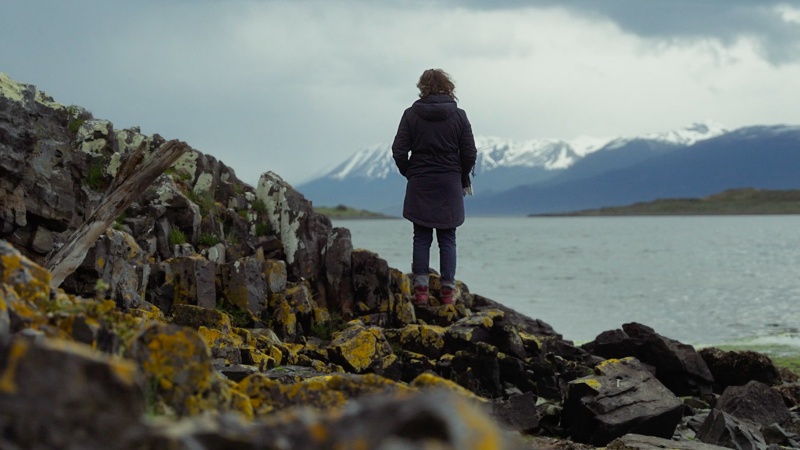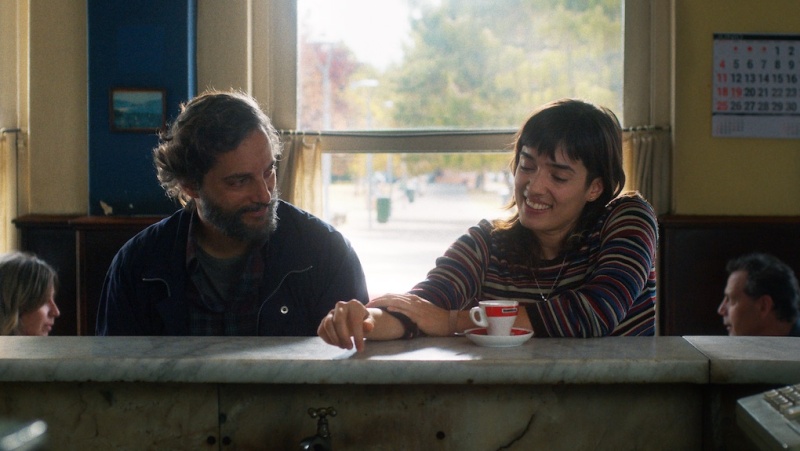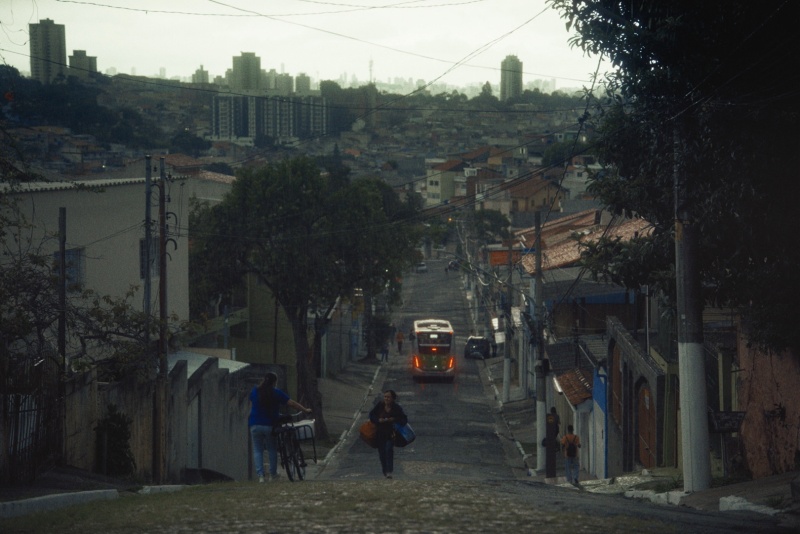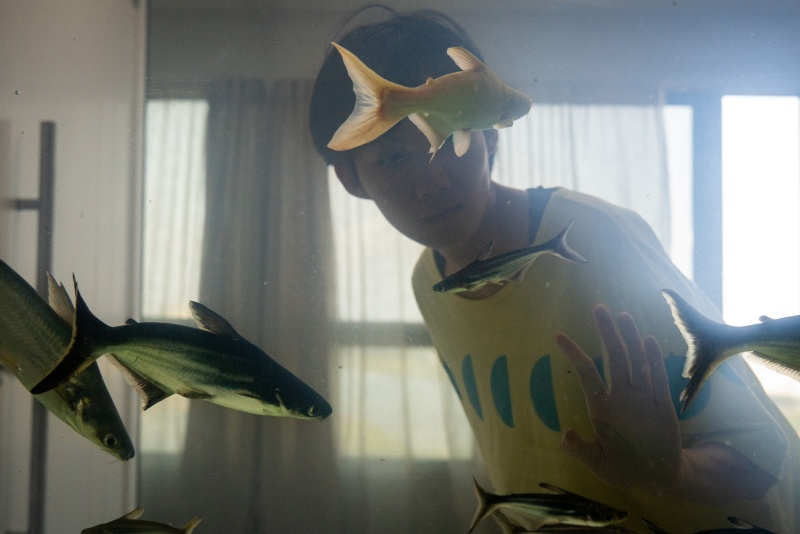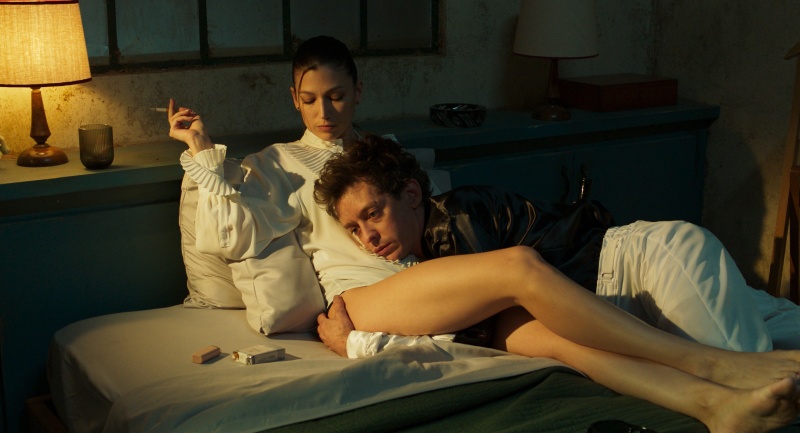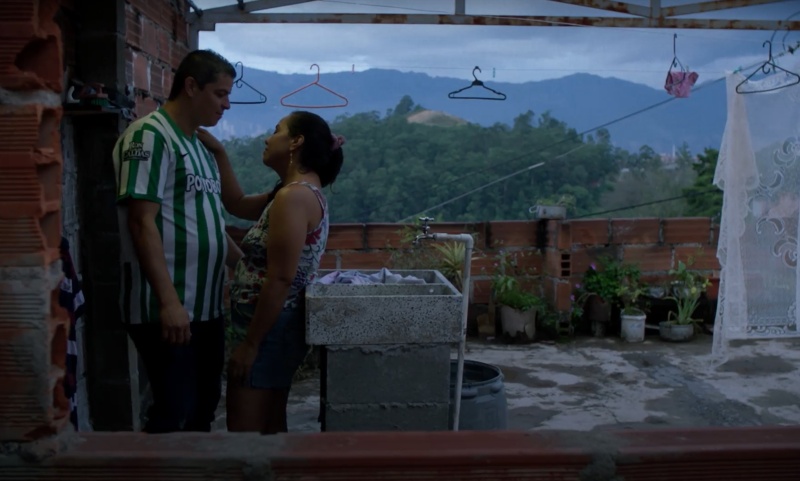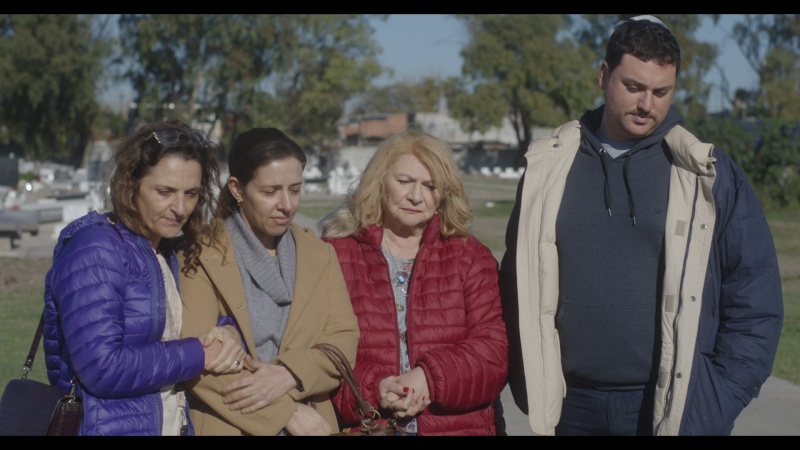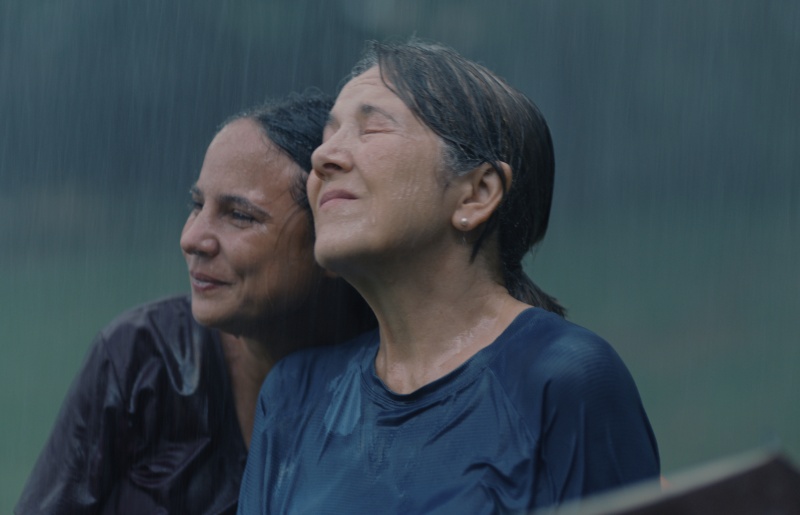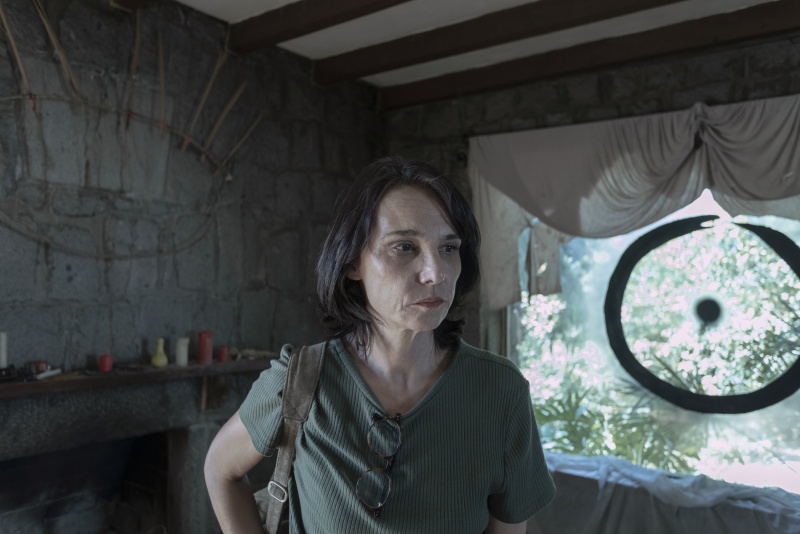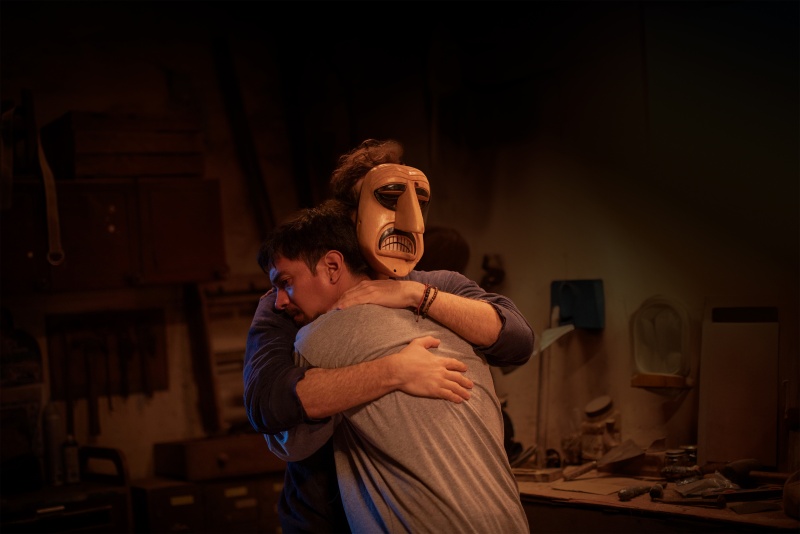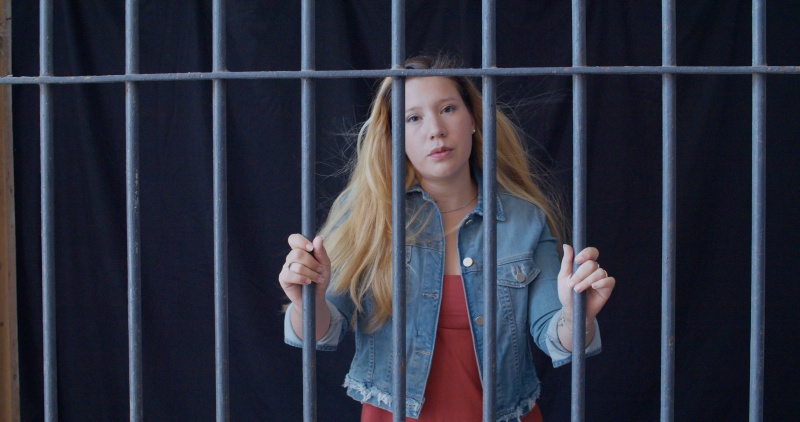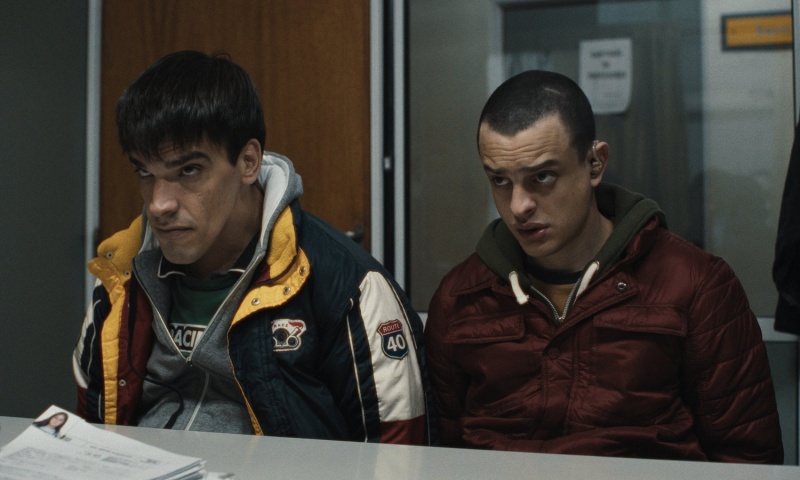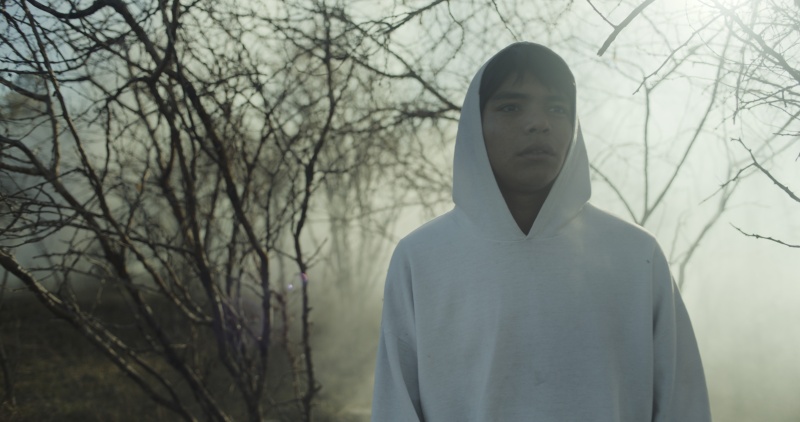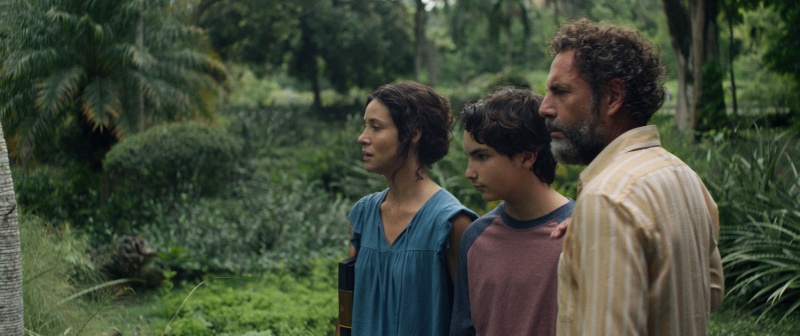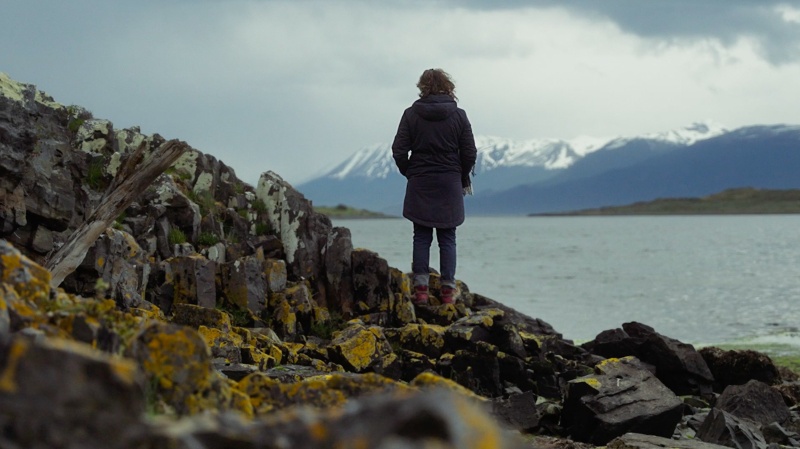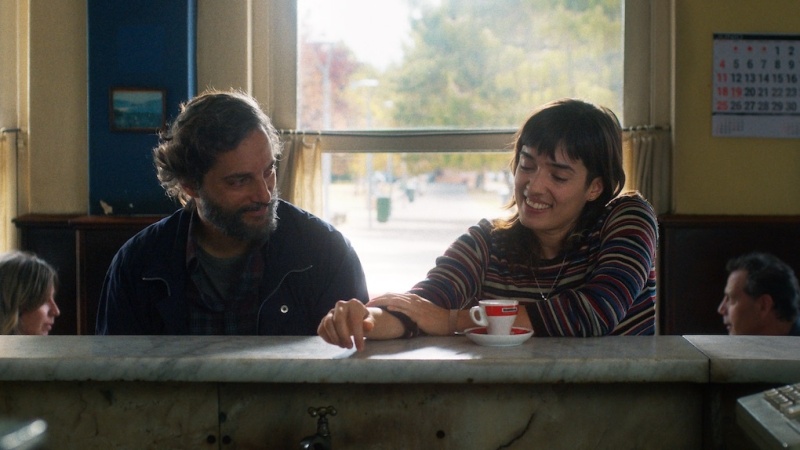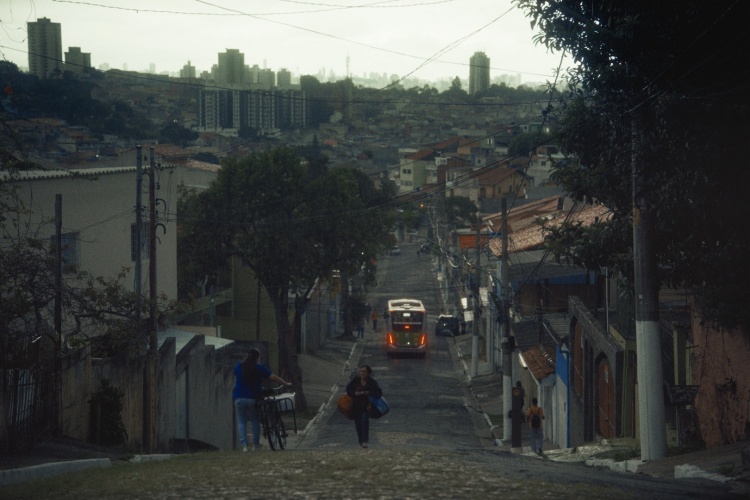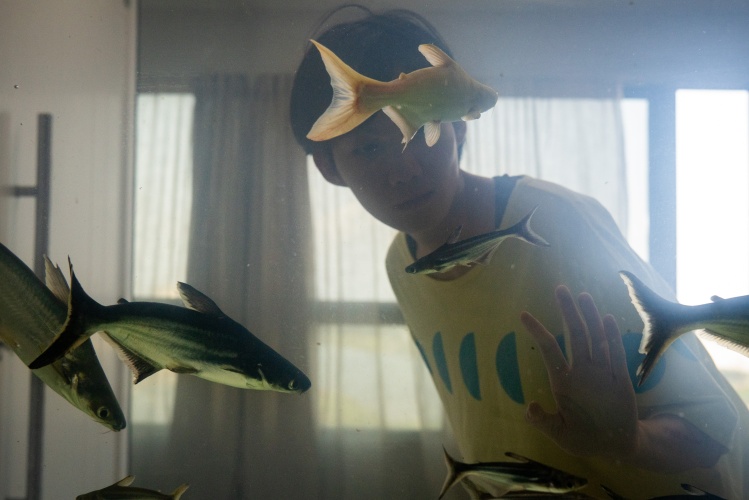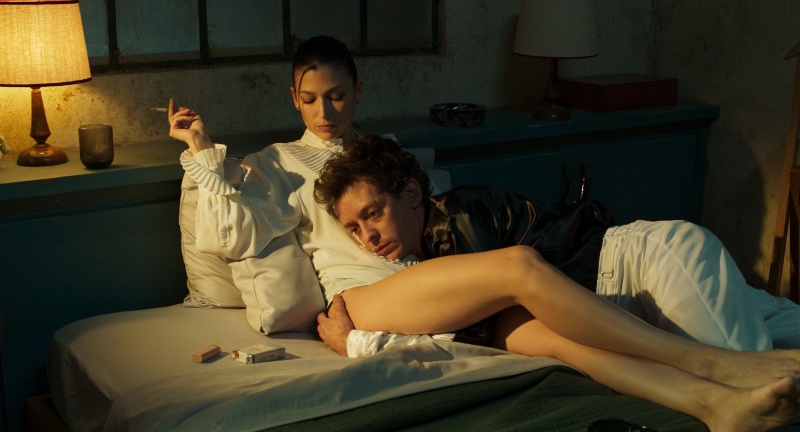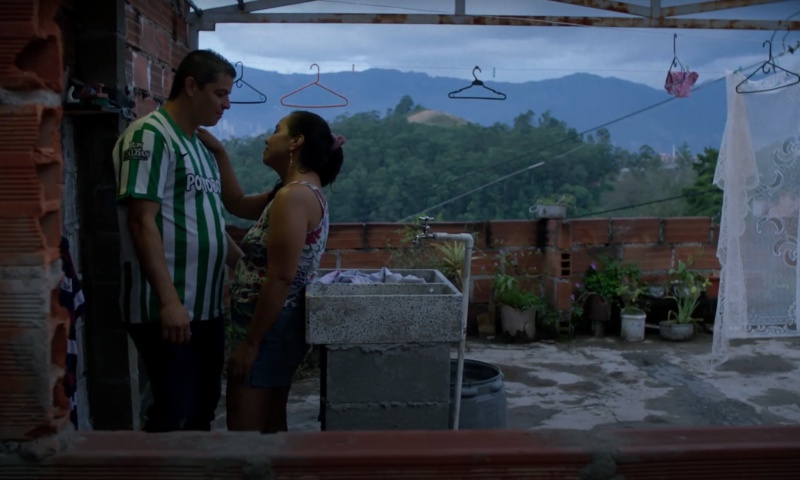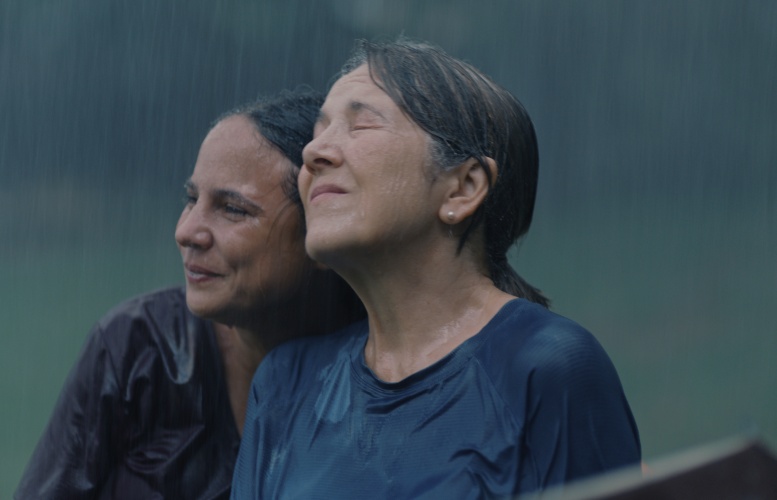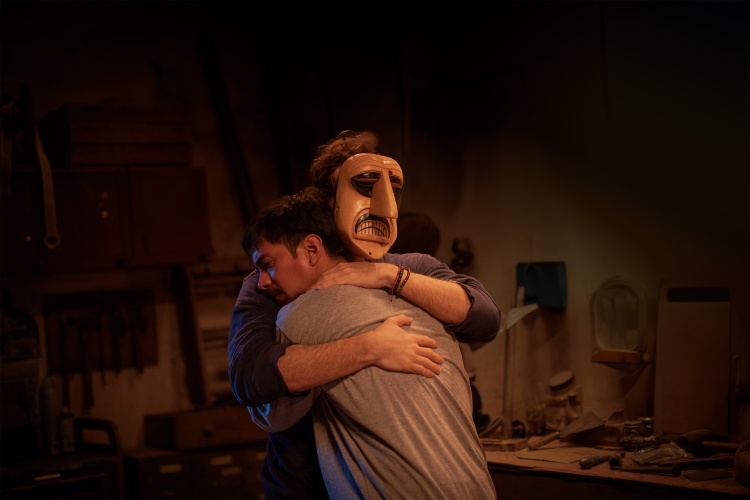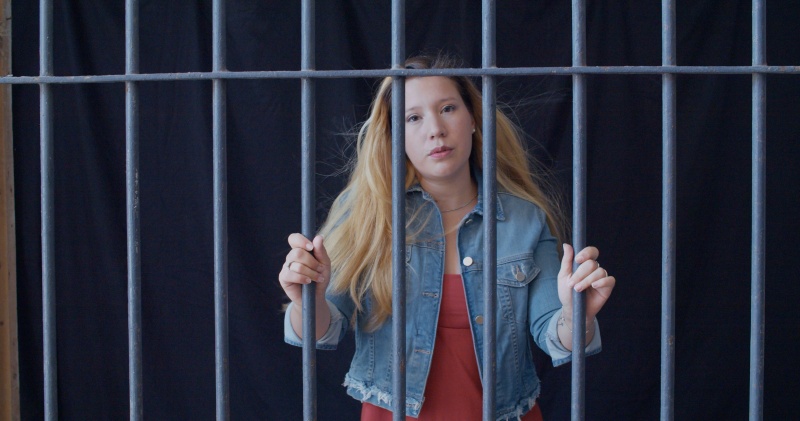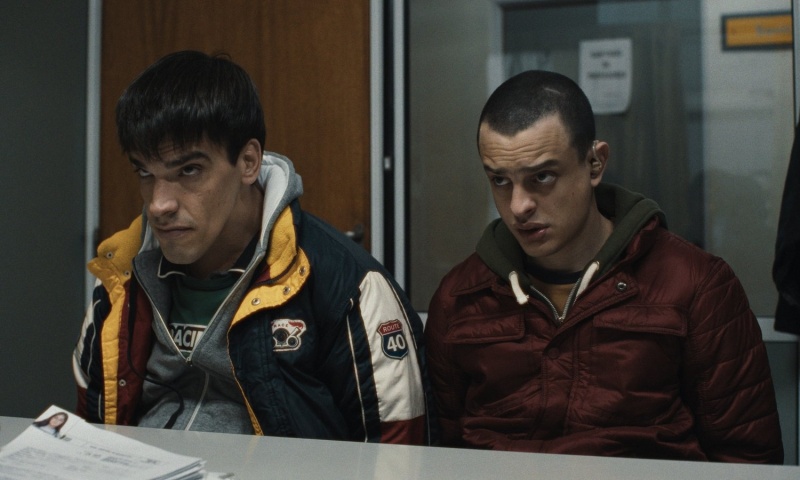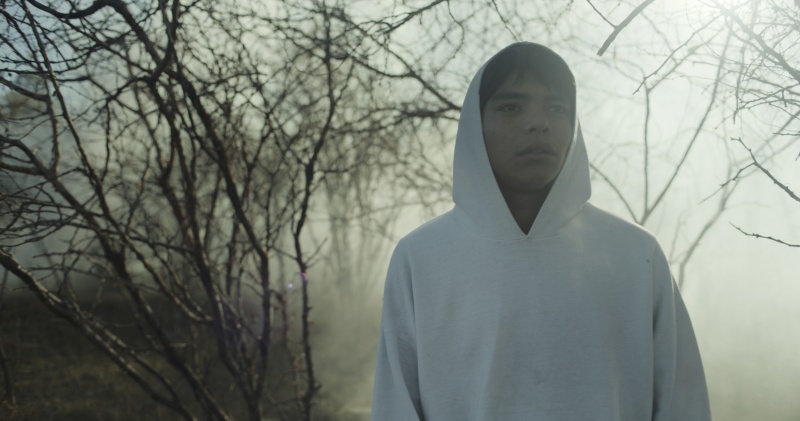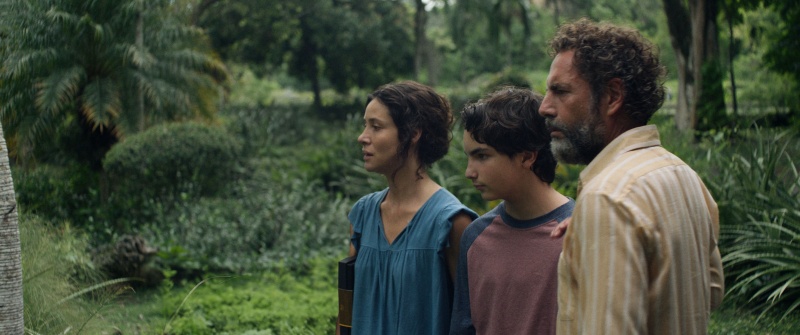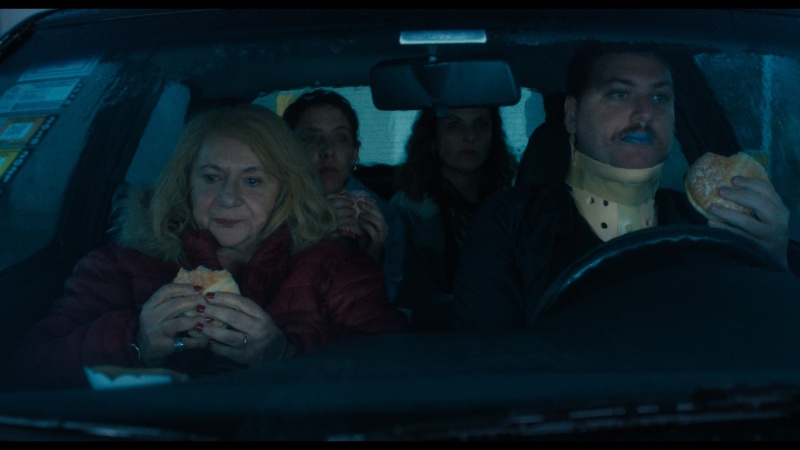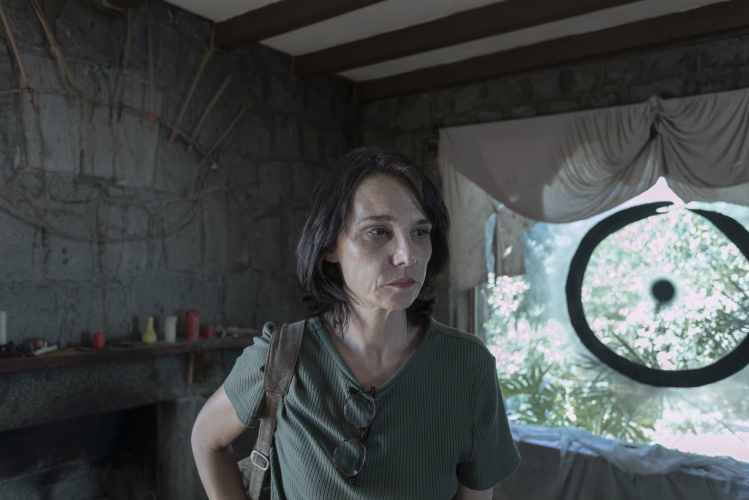The latest films by José Luis Torres Leiva and Celina Murga will respectively open and close Horizontes Latinos, the selection of the year’s features, not yet screened in Spain, from among all those produced totally or partially in Latin America, directed by filmmakers of Latin origin or which take Latin communities in the rest of the world as their backdrop or subject matter. Four of the fourteen feature films competing for the Horizontes Award were screened in WIP Latam (including last year’s winner) and two in the Europe-Latin America Co-Production Forum while another comes from the Ikusmira Berriak programme.
José Luis Torres Leiva (Santiago de Chile, 1975) will open Horizontes Latinos with Cuando las nubes esconden las sombras / When Clouds Hide the Shadow, premiered at Jeonju Festival. In the film, the actress and director María Alché travels to the world’s southernmost point to shoot a film. Torres Leiva has shown his earlier works at festivals such as Rotterdam and Venice, and competed for the Golden Shell in San Sebastian with Vendrá la muerte y tendrá tus ojos / Death Will Come and Shall Have Your Eyes (2019), previously selected for the Europe-Latin America Co-Production Forum. He has also participated in Zabaltegi-Tabakalera with El viento sabe que vuelvo a casa / The Wind Knows That I’m Coming Back Home (2016), El sueño de Ana (2017) and Sobre cosas que me han pasado (2018).
El aroma del pasto recién cortado / The Freshly Cut Grass, earning Celina Murga (Paraná, 1973) Best Screenplay at the Tribeca Festival, tells the parallel story of two love affairs set in the university environment. The Argentinian moviemaker, who will close Horizontes Latinos with this film included in the Co-Production Forum in 2020, has shown a number of her earlier works in San Sebastian: Ana y los otros / Ana and the Others (Horizontes Selection, 2003), Una semana solos / A Week Alone (Films in Progress, 2007) and La tercera orilla / The Third Side of the River (Horizontes Latinos, 2014).
Lola Arias (Buenos Aires, 1976) will participate in Horizontes Latinos with Reas, selected last year for WIP Latam and premiered in the Forum section of the Berlinale, where she made her debut with Teatro de guerra / Theater of War (Zabaltegi-Tabakalera, 2018). In her second feature, winner of the Audience Award for Best Documentary at Cinélatino-Toulouse, the Argentinian director reinvents the musical in a collective work where a group of performers dance and sing about their time in prison.
Querido Trópico / Beloved Tropic, starring Paulina García and Jenny Navarrete, unravels the lonely souls of a woman with dementia and her carer. The first feature film by documentary filmmaker Ana Endara (Panama City, 1976) will premiere at the Toronto Film Festival.
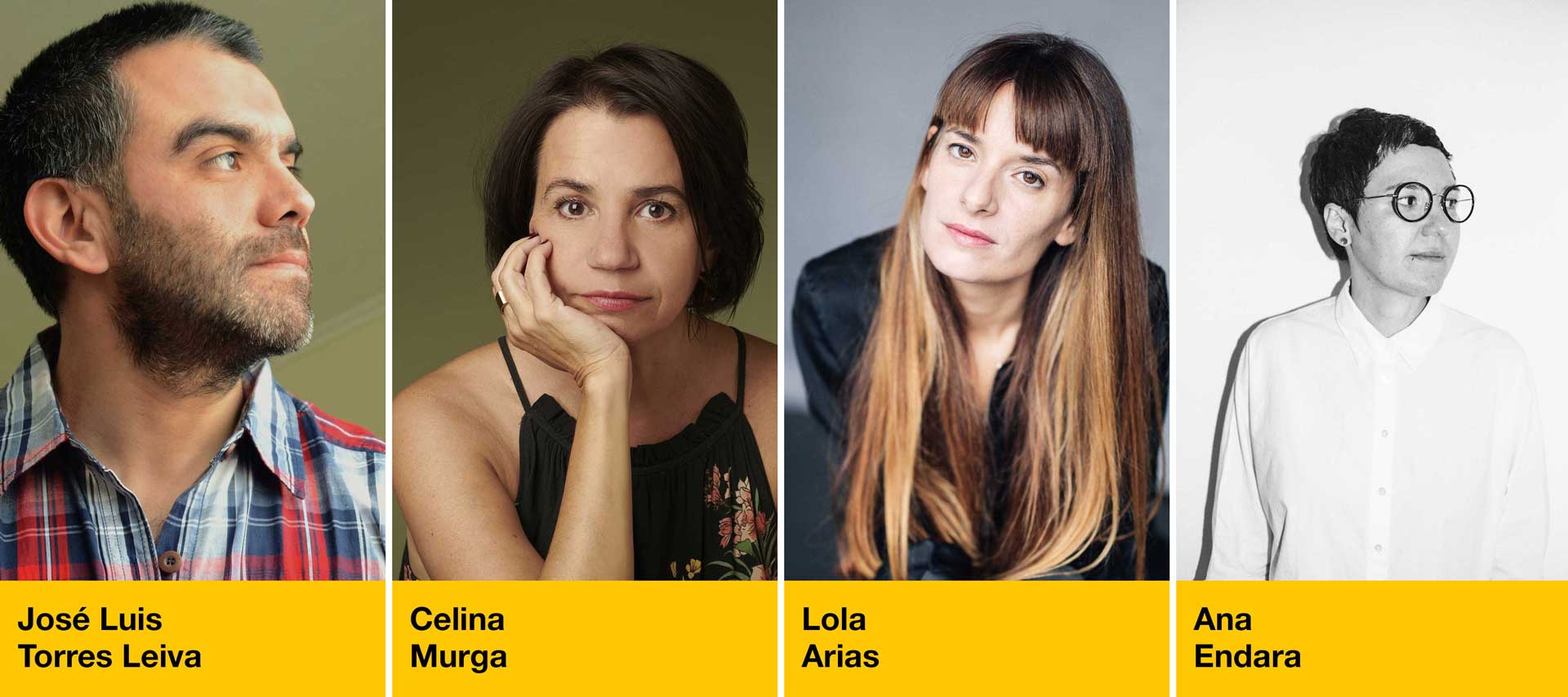
The Argentinian Federico Luis (Buenos Aires, 1990), whose shorts have screened at festivals including Cannes, Toronto, BAFICI, Mar del Plata and IDFA (Amsterdam), won the Grand Prix at the Cannes Semaine de la Critique with his feature debut, Simón de la montaña / Simon of the Mountain, about a young mover’s helper who is determined to change his life and makes new friends he tries to emulate.
Nahuel Pérez Biscayart and Úrsula Corberó star in El jockey / Kill the Jockey, with which Luis Ortega (Buenos Aires, 1980) will compete in Venice. The Argentinian filmmaker, who brought his debut, Caja negra / Black Box, to Made in Spanish (2002), previously participated in Horizontes Latinos con Monobloc (2005), while El ángel / The Angel (2018) was selected for Perlak following its premiere in Un Certain Regard at Cannes. His latest work focuses on a jockey whose career falls to pieces as his addictions take over his life.
With Cidade; Campo, telling two tales of migration between the city and the countryside, Juliana Rojas (Campinas, 1981) won Best Director in the Encounters section of the Berlinale. The Brazilian filmmaker has shown his previous movies at events including the Semaine de la Critique and Un Certain Regard at Cannes, Locarno, Rotterdam and Mar del Plata, among others.
The Mexican directors and producers Astrid Rondero (Mexico City, 1989) and Fernanda Valadez (Guanajuato, 1981) won the Grand Jury Prize in the World Cinema Dramatic Competition at Sundance with Sujo, the story of a boy’s survival after the murder of his father, a hired killer. Solo, Rondero directed Los días más oscuros de nosotras / The Darkest Days of Us, nominated for two Ariel awards and winner of seven international accolades, while Valadez won the Audience Award and Special Jury Prize in the same section at Sundance with Sin señas particulares / Identifying Features (Horizontes Award and Cooperación Española Award, 2020), having previously received the Films in Progress Industry Award in San Sebastian.
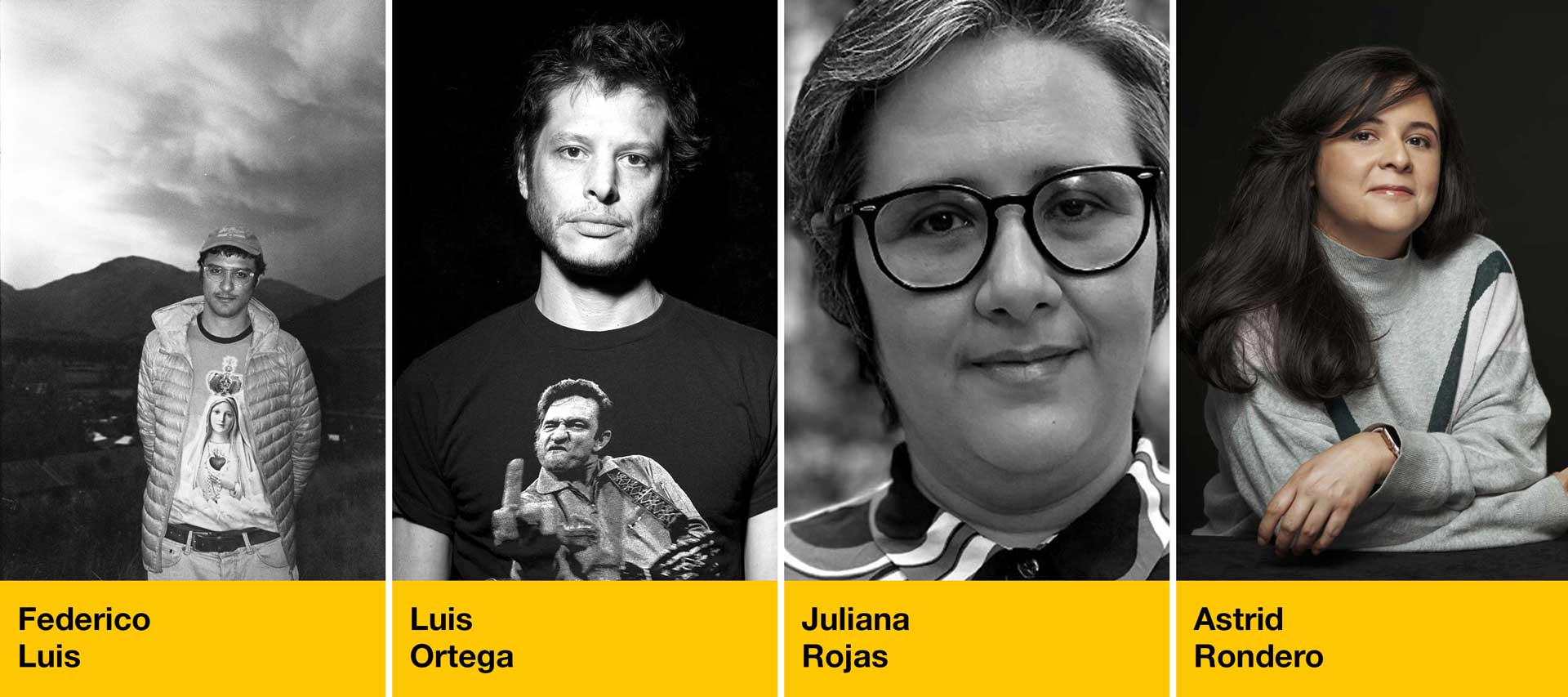
The Venezuelan Mariana Rondón (Barquisimeto, 1966), winner of San Sebastian’s Golden Shell with Pelo malo / Bad Hair (2013), will participate in Horizontes Latinos with the world premiere of Zafari, a film selected for the Europe-Latin America Co-Production Forum in 2019. The author of titles such as A la media noche y media / At Midnight and a Half (2000) and Postales de Leningrado / Postcards from Leningrad (2017) sets her latest movie in a dystopian world where a hippo’s arrival to the zoo sets conflicts ablaze.
The Peruvian Salvador del Solar (Lima, 1970) returns to Horizontes Latinos, where he presented his debut, Magallanes (2015), winner of the Films in Progress Industry Award in 2014. Ramón y Ramón, the title of his second feature screening as a world premiere, narrates the meeting between two men in Peru in the context of the Covid pandemic.
The Colombian Yennifer Uribe Alzate (Medellín, 1988) participated in the Forum section of the Berlinale with her debut, La piel en primavera / Skin in Spring, a film following the liberation process of a woman who works as a security guard in a shopping centre. In 2022 the film participated in the San Sebastian Festival’s WIP Latam section with the title of Sandra.
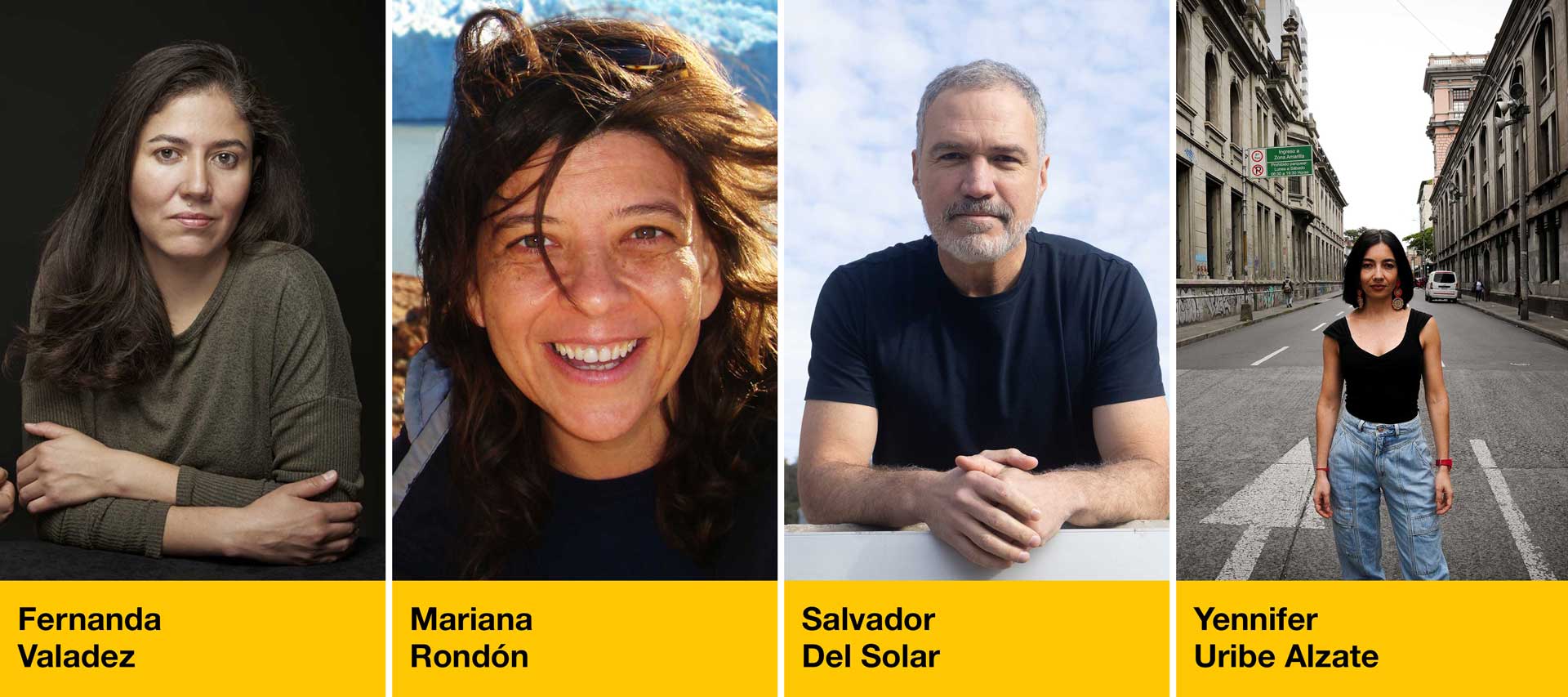
Dormir de olhos abertos / Sleep With Your Eyes Open is the title of a project about crossed stories with which Nele Wohlatz (Hannover, 1982) participated in the Ikusmira Berriak residencies programme in 2018 and with which she landed the FIPRESCI Prize in the Encounters section of the Berlinale. With El futuro perfecto / The Future Perfect (2016) the German director living in Argentina won a number of awards including the Golden Leopard for Best First Feature in Locarno.
These titles join another two with Spanish production which were recently presented. On the one hand, debutant Iair Said (Buenos Aires, 1988) landed last year’s WIP Latam Industry Award and the Egeda Platino Industry Award for Best WIP Latam with Los domingos mueren más personas / Most People Die on Sundays, premiered in the ACID section of the Festival de Cannes. Said, with experience as a short filmmaker and actor, directs and stars in the existential crisis of a young middle-class Jewish boy who returns to Buenos Aires from Europe when his uncle dies.
On the other, Horizontes Latinos will also include the movie co-directed by Sofía Paloma Gómez (Santiago de Chile, 1985) and Camilo Becerra (Santiago de Chile, 1981), Quizás es cierto lo que dicen de nosotras / Maybe It’s True What They Say About Us, another of the projects shown in last year’s WIP Latam. The latest film from the moviemaking duo tells the tale of a successful psychiatrist visited by her elder daughter, who had been cut off from the world in a sect for a long time.
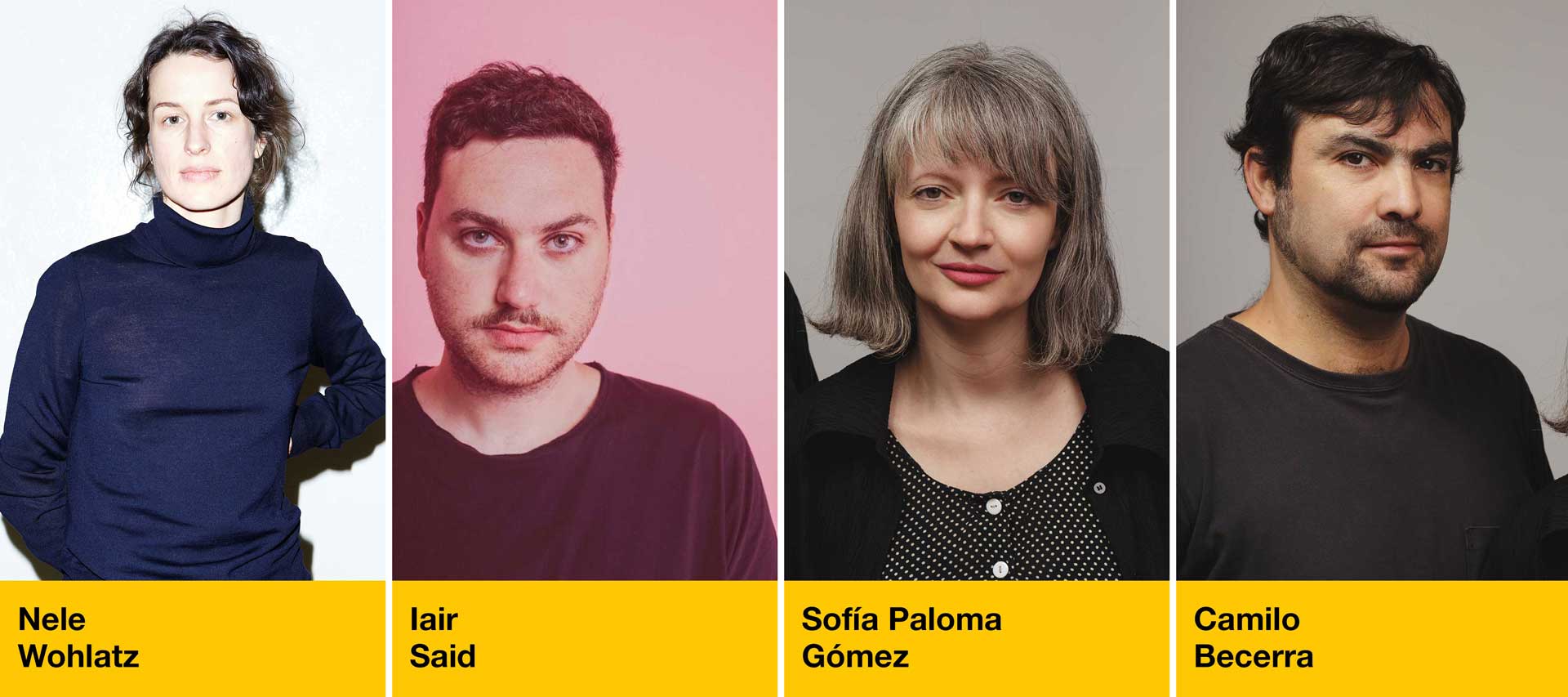
All of the films in the Horizontes Latinos section compete for the Horizontes Award, coming with 35,000 euros for the director and distributor of the film in Spain. The Horizontes Award Jury has the task of studying these titles and deciding the winner. First or second films by their director (in this case, Reas, Simón de la montaña, Ramón y Ramón, La piel en primavera, Dormir de olhos abertos and Los domingos mueren más personas) also compete for the DAMA Youth Award, decided by a jury of 150 students aged from 18-25 years.
María, an actress, heads for Puerto Williams to star in a movie. A bad storm prevents the film crew from arriving on time, leaving her to get by on her own. Looking for help to ease her severe back pain, she meets the locals of the world's southernmost city and a pending story in her life. This is the tale of waiting and an accidental encounter between María, the continent's most meridional nature and its inhabitants.
Pablo is a university lecturer, married and with two sons. He starts a secret affair with one of his female students, not realising the consequences. Meanwhile, Natalia, a university lecturer, married and with two daughters, starts a secret affair with one of her male students. Two stories that alternate and mirror one another; one featuring a man, the other a woman.
Two tales of migration between city and countryside. In the first part, after a tailings dam disaster floods her hometown, rural worker Joana moves to São Paulo to find her sister Tania, who lives with her grandson Jaime. Joana struggles to thrive in the working city. In the second part, after the death of her estranged father, Flavia moves to his farm with her wife Mara. The nature forces the two women to face frustrations and cope with old memories and ghosts.
A coastal city in Brazil. Kai arrives from Taiwan for holidays with a broken heart. A broken air conditioner sends her into Fu Ang’s umbrella store. He could become a friend, but the rainy season doesn't arrive and his shop disappears. While looking for Fu Ang, Kai discovers the story of Xiaoxin and a group of Chinese workers in a posh skyscraper. Kai finds herself strangely mirrored in Xiaoxin’s tale.
Remo Manfredini is a legendary jockey, but his self-destructive behavior is beginning to outshine his talent and threaten his relationship with his girlfriend Abril. On the day of the most important race of his career that will clear him of his debts from his mobster boss Sirena, he has a severe accident, disappears from the hospital and wanders the streets of Buenos Aires. Free from his identity, he starts to discover who he is truly meant to be. But Sirena wants him found, dead or alive.
Sandra is the new security guard at a shopping centre. Running into a bus driver on her first day at work leads to an affair between them. Sandra gets to grips with her sex life and sets out on a road to freedom through her own experience with desire.
David returns to his home in Buenos Aires only to learn that his mother has decided to pull the plug on Bernardo, his father lying in coma. He oscillates between the intimate coexistence with his mother, alienated by the pain of the imminent loss of her husband, and a ravenous desire to fill his existential anguish. He spends his days learning how to drive, oscillating between the past and the present and trying to have sex with anyone showing him the least bit of attention.
A tropical garden provides the setting for the meeting between two lonely souls who accompany one another for a time: that of an upper-class woman from whom dementia is taking all she ever was, and that of her caretaker, a lonely immigrant, alienated from the world by a terrible secret.
Inspired by true events. Ximena, a successful psychiatrist, receives an unexpected visit from her eldest daughter, Tamara, back from a long period cut off from the world as the member of a sect. A police investigation is launched while the girl takes refuge in her mother’s house as it transpires that Tamara’s newborn son disappeared within the sect in strange circumstances. Both the law and Ximena will try to find out what has become of the missing baby.
Having received the ashes of his father, with whom he had no more than a distant relationship, Ramón meets Mateo during lockdown. Despite their differences, a profound connection grows between them, prompting them to question themselves. Mateo decides to accompany Ramón on the journey to scatter the ashes in Huancayo. On the way, Ramón will realise that he was looking for answers to the wrong questions, and that he must heal from within in order to move on.
Yoseli has a tattoo of the Eiffel Tower on her back and has always wanted to travel, but she was arrested at the airport for drug trafficking. Nacho is a trans man who was busted for fraud and formed a rock band in jail. Gentle or tough, blond or shaven, cis or trans, old-timers or new arrivals: in this hybrid musical everybody recreates their life in a Buenos Aires prison.
Simon is 21 years old. He introduces himself as a mover's helper. He claims not to know how to cook or clean the bathroom, but he does know how to make a bed. Recently, he seems to have become a different person…
After a cartel gunman from a small Mexican town is murdered, Sujo, his beloved four-year-old son, is left an orphan and in danger. Sujo narrowly escapes death with the help of his aunt who raises him in the isolated countryside amidst hardship, poverty, and the constant peril associated with his identity. When he enters his teens a rebelliousness awakens in him, and like a rite of passage, he joins the local cartel. As a young man, Sujo attempts to make his life anew, away from the violence of his hometown. however, when his father’s legacy catches up with him, he will come face-to-face with what seems to be his destiny.
In a small zoo, the arrival of the hippopotamus Zafari is celebrated by neighbours of opposing social classes. Ana, Edgar and their son Bruno watch all the action from the windows of their decadent high-class building. Amidst a chaos of food, water and electricity shortages, the family has to solve everyday problems and the lack of basic needs while trying to find a solution to escape. Ana scavenges for food in the abandoned apartments, but strange noises in the dark corridors frighten her more and more. In a world that has become wild, Zafari is the only one who still has enough to eat.


